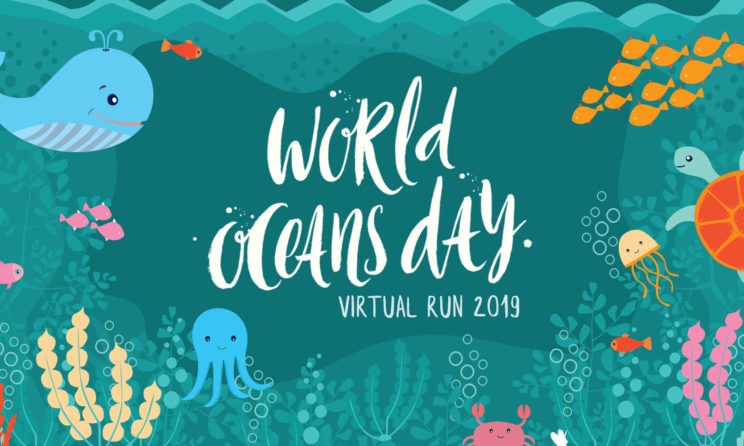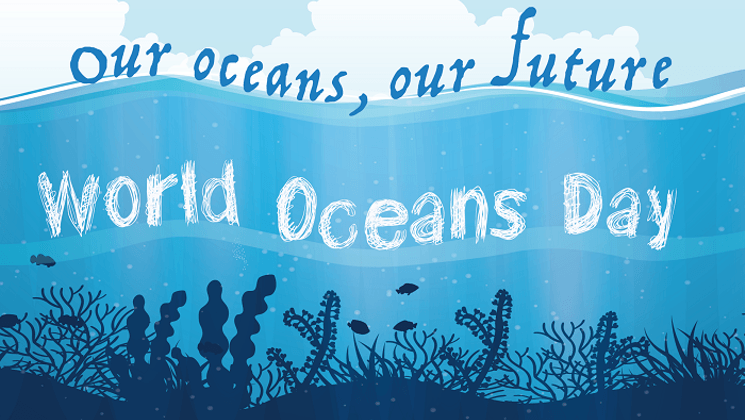
World Oceans Day 2019 Objective, Themes And Major Things to Know: 8 June marks as World Oceans Day which takes place every year on this particular date. The concept was initially suggested in the year 1992 at the Earth Summit by Canada’s International Centre for Ocean Development (ICOD) and the Ocean Institute of Canada (OIC).
At the first World Oceans Day which was held in the year 1992, the objectives were to move the oceans from the sidelines to the center of the intergovernmental as well as NGO considerations and policy and to make stronger the voice of ocean and coastal constituencies worldwide.
The objective of World Oceans Day
World Oceans Day is a yearly observation in order to honor, help and protect, as well as to conserve the world’s oceans. The ocean offers us numerous resources as well as services comprising oxygen, climate regulation, food sources, medicine, and much more. World Oceans Day also offers a golden opportunity to take personal and community action in order to protect the ocean and its resources.
World Oceans Day Themes
The themes of World Oceans Day from the year 2011 to 2019 are:
2011: “Our Oceans: greening our future”
2012: “UNCLOS @ 30”
2013: “Oceans & People”
2014: “Ocean Sustainability: Together let’s ensure oceans can sustain us into the future”[5]
2015: “Healthy Oceans, Healthy Planet”
2016: “Healthy Oceans, Healthy Planet”
2017: “Our Oceans, Our Future”
2018: “Clean our Ocean!”
2019: “Gender and Oceans”
Major Things to Know About the Condition of Our Oceans on World Oceans Day

The rise in Ocean Plastics
There are more than 8 million tonnes of plastic leak into the ocean every single year, which is just equal to dumping a garbage truck of plastic each minute. There are as many as 51 trillion micro plastic particles litter our seas, which are extremely harmful to marine wildlife.
If at this rate we will dump plastic items such as plastic bottles, bags, and cups after a single use, by 2050 there is going to be more plastic than fish in the ocean.
Plastic waste also kills up to 1 million seabirds, 100,000 sea mammals as well as uncountable fishes every single year.
“The message is that marine plastic has increased significantly and we are seeing it all over the world, even in places where you would not want to, like the Northwest Passage and other parts of the Arctic,” Marine Biological Association in Plymouth, England researcher Clare Ostle told The Guardian.
Ocean Acidification makes a harder life for coral reefs
Ocean acidification happens when carbon dioxide dissolves in seawater and modify or change its chemical character. This then further decreases the amount of calcium carbonate that animals like corals use to restorate themselves after hectic events like bleachings. Marine heat waves affect coral reefs very adversely by causing coral bleaching, in which corals eject the algae that give them colour as well as the nutrients.
“We found that corals and coralline algae weren’t able to acclimatize to ocean acidification,” study author Malcolm McCulloch said.
Climate change or Global Warming is affecting the oceans
Oceans have immersed around 93% of the combined extra heat that has been stored by warmed air, sea, land, and melted ice in Polar Regions in the middle of 1971 and 2010. This has led to a quicker sea level rise to increase. When the sea level upsurges, numerous coastal communities face issues such as erosion, floods, contaminations of freshwater reserves and food crops, as well as a loss of nesting beaches, and many other effects.
“We were stunned to find that fisheries around the world have already responded to ocean warming,” study co-author and Rutgers’ Department of Ecology, Evolution, and Natural Resources.
Marine Pollution poisoning the seafood
Fish is considered to be one of our most important sources of animal protein. It books for around 17% of global protein intake and goes beyond 50% in many least-developed nations. But marine pollution is polluting the seafood we eat.
Overfishing is also one of the major concerns as we’re also consuming more fish than there is supply. The Food and Agriculture Organization also reports that approximately 70% of the world’s fish stocks are currently fully fished, overfished or depleted.






